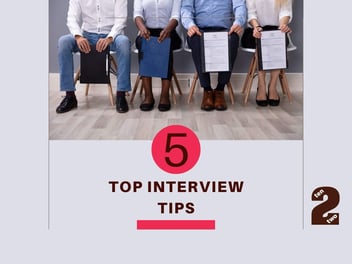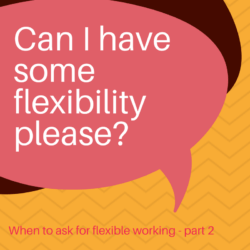How to Succeed in a Job Interview
Congratulations! Your CV and cover letter have worked their magic and you’ve got yourself a job interview.
Being invited to a job interview can be a very daunting experience, particularly if it’s been a few years since you’ve had one.
Here we’ve pulled together some top tips to show you how to succeed in a job interview.
There are three key elements to succeed in any job interview:
- Preparation
- Presentation
- Persuasion
1. PREPARATION TIPS FOR YOUR JOB INTERVIEW
Research the Company
Make sure you fully understand the job description and that you have researched the company as much as you can. Most companies have websites. Use the website to look for recent press releases, the latest company news or their blog and think how this might relate to the role you are going for. These days social media is also a useful source of up to date information – check out the company profile on LinkedIn and what they’re saying on Facebook and Twitter and what’s being said to them. It also worthwhile to search the names of the hiring manager online and on LinkedIn – it’s a great advantage to know something about your potential interviewer! Pick up some trade journals or search the web to learn more about the company’s industry. Try to get an understanding of where the company might sit amongst its competitors.
Know Your Skills
Allocate some time to re-read your CV and spend some time analysing your skill sets that are particularly relevant to the job in question. Ensure you have thought through examples of previous experiences that would fit situations that may occur in this job. It is a good idea to have at least 3 achievement stories prepared. These demonstrate hard to measure qualities like initiative, team skills, judgement and leadership. As in your CV, quantify why these were achievements – an increase of sales by 10% year on year, etc.
Know Your Motivations and Reasons
Spend a little time thinking about yourself and how you can be perceived as an interested, enthusiastic candidate for the job interview. Be clear about why you want to do the job. In addition to knowing about the role and the relevance of your skills and experience; think what you’re going to say when the interviewer asks:
Why do you want this job?
What is it about the company that attracts you?
Are you going to find the job rewarding? Is it using your hard-won skills? Working in a team again? Working in a growing business?
Do your homework. This includes knowing your CV inside and out, your cover letter and why you are right for the role in question and why the company would be a great one to work for. It all sounds obvious, but this is a crucial part of clinching the job.
The flexible hours may be ideal and the company’s offices may be close to home but be careful about not positioning this as your primary motivation. Be prepared to talk about yourself and your aspirations. Many people returning to work or opting for a flexible role are not driven by career aspirations, rather they’re seeking a better life balance whilst doing a satisfying job. This is fine but interviewers may be looking for a better sense of personal direction and career or personal aims.
Were you career oriented?
What drives you now?
How can the job contribute to your aims?
Does this make the job valuable to you?
Also, don’t be afraid to talk about what you bring to the role at whatever stage you’re at in your career e.g. experience, adaptability & organisation. Understand how you can add value to the employer. It follows on from ‘what can the job do for me’. What can you do for the job and for the company? Understand what benefits you bring, the value of your experience, working as part of a team etc.
Read through our ‘Interview Questions‘ Guide and think about your answers. Write them down and adapt when necessary.
Be prepared for the Part-Time and Flexible Working Discussion
Can you convey that you know what it takes to work flexibly? A part-week can be a concern to an employer but if they know that you understand the restrictions and opportunities and demonstrate your organisations skills you can roll past the issue and convince them that – with you – there won’t be any issues.
“Are you too Senior?” If it can be perceived that you are ‘trading down’ – if you’ve done a more senior role in your past career than the one you’re being interviewed for – why would you be happy doing this one? You may need to convince the interviewer that you can do a good job at that level, make a valued contribution and won’t be bored and leave within a month. ‘I just want to work’ may be true but won’t get you the job.
Be prepared to handle the childcare question. Interviewers sometimes asks about whether you need to set up childcare (they shouldn’t but do), one approach is not to explain the options or say you have to look into it but to simply say that this is not a worry and that you have options to choose from. Before going for an interview you should have explored these in case you’re successful and your prospective employer is looking for a quick start.
Prepare Your Questions
An interview is a two way process which means you need to be asking as many questions as the client! It is imperative that you have pre-prepared questions to ask so there are no awkward silences. Your interviewer will be enthusiastic about their business and will want to see this reflected in you. For example:
-
What will my responsibilities be?
-
How has the position become vacant?
-
How will you assess my performance?
-
How does the role fit into the structure of the department?
-
How does the department fit into the organisation as a whole?
-
Who will I report to and are there persons reporting to me?
-
Where does my line manager fit into the structure?
-
What encouragement is given to undertake further training?
-
Who are your customers?
-
Where is the company going? Expansion plans?
-
Where is the specific location of the position? Are there any plans to change this?
-
Will the position entail travelling?
-
How soon will you decide on the appointment?
-
What do you like most about working at this company?
-
What is the next step?
Prepare Yourself!
It’s a good idea to get everything ready the night before:
Decide what you will wear and make sure it is ready – you don’t want to be late because of ironing a shirt
Go to bed early and get a good nights’ sleep.
Check the exact location of your interview, how you are getting there and who you are meeting prior to the interview. Know where the station is or where you can park, take change for parking and allow yourself plenty of time to get there in case of delays!
Make sure you feel comfortable and confident. If you need a haircut, that takes planning, but it will help you to feel good at interview.
2. PRESENTATION TIPS FOR YOUR JOB INTERVIEW
First impressions are the most powerful and the hardest to change. It only takes 4 seconds to make your first impression and 4 years to change a bad one, so make your initial impression count!
- Always introduce yourself with a firm and positive handshake and a confident smile!
- It is essential that you dress smartly (ideally a suit). If you haven’t worked for a while, ask friends or go online and look at the current trends in business dress
- Remove any jewellery that could be considered “unprofessional” – It may be fine outside of work but not every employer may think so
- Body language is incredibly important – you must maintain good eye contact with the interviewer and speak in a clear and confident manner. Try not to fidget or fiddle with your hair or jewellery despite how nervous you may be feeling!
- If you are a regular smoker, try not to smoke immediately before the interview as it may be quite obvious to those who do not smoke
- Be aware of how much perfume or (after-shave!) you’re wearing!
3. PERSUASION TIPS FOR YOUR JOB INTERVIEW
This is the time when you can really put your case forward as to why you are the best person for the job. An interview offers the opportunity not only to sell yourself but also to find out whether the company and job is really of interest to you.
- Relax and smile! Why be nervous? You haven’t even found out whether the job is of interest to you yet. Remember: the employer is interviewing you because they have a vacancy. They would like you to be the perfect person just as much as you would like the job itself.
- Allow the employer to finish the sentences and listen clearly to what they say. No one likes to be talked over or interrupted.
- Answer the questions directly, providing the information that is being asked for and do not waffle!
- Tell the truth – if you don’t understand what the client has asked you, ask them to explain. There is no point giving an answer that the client is not looking for.
- Take your time before answering any difficult questions as you should think through the answer and express yourself clearly. Remember your achievements and skills examples that you will have previously prepared.
- Always maintain your professionalism. Even if the interviewer is very casual and friendly remain professional at all times.
- Try not to put too much emphasis on salary or package details at this stage. An employer prefers someone interested in the job itself rather than the salary. If you are working through an agency they will handle negotiations on your behalf, so only discuss ball-park figures at this stage.
- If you are not happy with “a wobbly chair” or “sun in your eyes” etc. during the interview you must inform the interviewer. Interviews can be hard enough without further issues.
- Ask great questions – this not only shows you have researched the company in general, it also shows you are really interested in the job. Remember if you are interested in the job, make sure you tell the interviewer that this is the case. Try to find out what the next steps are and the timescales involved as employers often like people to close the interview in this way.
- Shake hands as you leave.


 Back to resources
Back to resources 9 min read
9 min read








